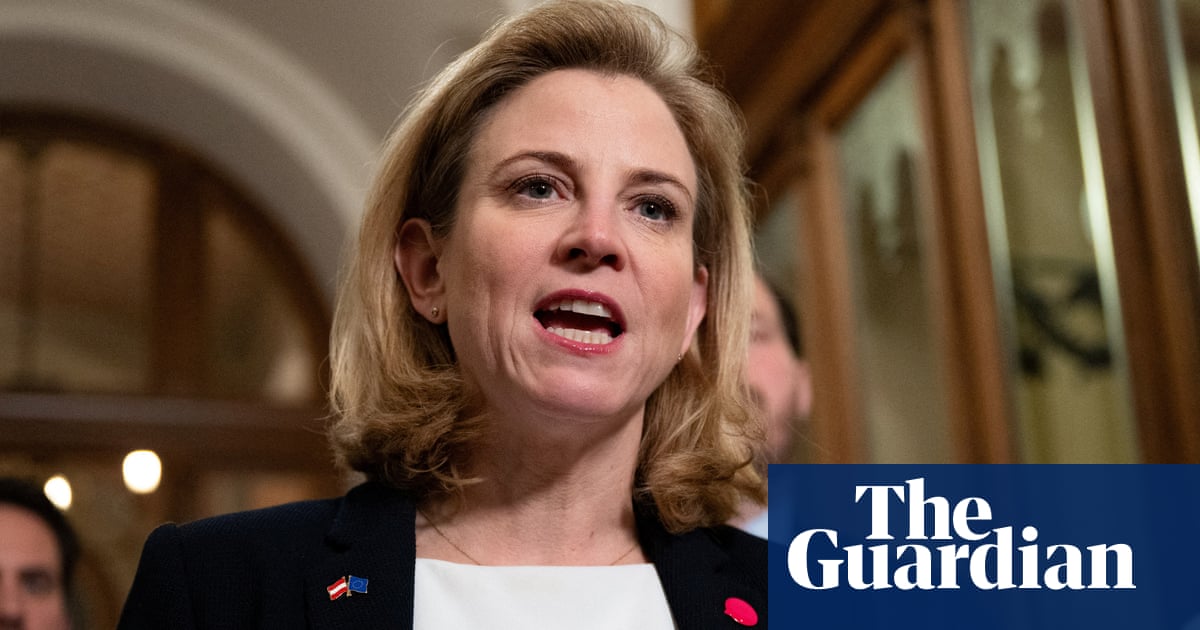As the daughter of a man who drove George W Bush’s invasion of Iraq, Liz Cheney seemed a strange political bedfellow for a Democratic candidate intent on reclaiming disaffected Arab support in one of the US presidential election’s key battlegrounds.
But Cheney, the former third-ranking Republican in Congress before her career was derailed by her enmity with Donald Trump, was cast in precisely that role with Kamala Harris last week.
The pair, whose ideologically conflicting views on abortion and a host of other issues would once have put them at loggerheads, appeared together in the vice-president’s trawl for votes in critical swing states, including Michigan. The state is home to a large ethnic Arab voting bloc that still remembers Dick Cheney’s controversial role as Bush’s vice-president but is now reassessing its traditional pro-Democratic sympathies amid anger over the Biden administration’s support for Israel’s war in Gaza.
Trump, who has suggested that Cheney should be tried by a military tribunal for her congressional role in investigating his attempt to overturn the 2020 election, mocked it as a political gift.
“Arab Voters are very upset that Comrade Kamala Harris … is campaigning with ‘dumb as a rock’ War Hawk, Liz Cheney, who, like her father, the man that pushed Bush to ridiculously go to War in the Middle East, also wants to go to War with every Muslim Country known to mankind,” he posted on his Truth Social platform.
The argument – however warped in its expression – summarises one part of Harris’s conundrum in Michigan. She faces a serious hurdle after the Uncommitted movement, a pro-Palestinian protest group that is calling for an immediate ceasefire in the Gaza war and an arms embargo on Israel, declined to endorse her as she has sought to steer a careful middle path on the issue. The movement won more than 100,000 votes in Michigan when it contested last February’s Democratic primary against Joe Biden when he was still the party’s nominee.
“I don’t think having Liz Cheney on the team helps at all, because she doesn’t bring a flock of votes with her,” said James Zogby, president of the Arab-American Institute and a member of the Democratic National Committee.
Yet the endorsement from Cheney – along with that of her father, who has also publicly backed the Democratic nominee – highlights a broader aspect of Harris’s campaign; to win, she is relying on the public support of high-profile anti-Trump Republicans to persuade enough hitherto GOP voters to set aside old habits and vote for her on 5 November.
To that end, Harris’s coalition tent has expanded to include a broad swath of anti-Trump Republican refuseniks, including members of his former administration who have pledged themselves to the Democratic nominee in the interests of stopping him.
Among them are Stephanie Grisham, a former White House press secretary, Olivia Troye, a national security adviser to Mike Pence, Miles Taylor, a former homeland security department chief of staff, as well as Adam Kinzinger, a former Illinois congressman who - like Cheney - served on the House of Representatives committee investigating the 6 January 2021 attack on the US Capitol by a Trump-incited mob.
Other Republican Harris-endorsers include Alberto Gonzales, the former attorney general in the Bush administration and a man generally acknowledged as a legal architect of the US torture programme used in the post-9/11 “war on terror”. And last week, Fred Upton a former Michigan congressman who served for three decades before retiring in 2022 after voting to impeach Trump over January 6.
Harris’s campaign has welcomed them all, though few so warmly as Cheney.
The strategy has been accompanied by Harris moving to the centre by jettisoning previously held leftwing positions such as Medicare for all and support for a fracking ban, while embracing a tougher stance on immigration, Trump’s most emblematic campaign theme.
Prominent Democrat progressives like the Vermont senator Bernie Sanders, Senator Elizabeth Warren of Massachusetts and Alexandria Ocasio-Cortez, the outspoken House member for New York, have remained quiescent in the interests of maintaining a united front – until now.
Sanders, who had previously defended the vice-president’s retreat from progressive policies as “pragmatic” and essential to “win the election” broke cover last week, warning that her embrace of Republicans risked “losing the working class”.
“The truth of the matter is that there are a hell of a lot more working-class people who could vote for Kamala Harris than there are conservative Republicans,” Sanders – who has spoken at two dozen campaign events for Harris in October alone but, unlike Cheney, not appeared on a podium with her – told the Associated Press.
after newsletter promotion
“She has to start talking more to the needs of working-class people.”
Joseph Geevarghese, executive director of Our Revolution, a leftwing group founded as a spin-off of Sanders’ 2016 presidential bid, told AP that Harris’s approach could cost her 10% of the progressive vote – with some possibly casting a ballot for Trump.
Zogby agreed. “Having an entire campaign focus on winning over quote-unquote moderate Republicans – and Liz Cheney is not a moderate Republican,” makes voters anxious, he said. “When somebody hears Liz Cheney being considered for a cabinet position, that makes people go into the panic mode. It may actually cost votes.
“There is an importance in reaching moderate Republicans. [But] the definition of a moderate Republican is not somebody who rejects Donald Trump. It’s somebody who espouses policies that are themselves moderate in terms of their economic and foreign policy agenda.”
But Mark Bergman, a veteran Democratic operative who has liaised with Republicans who have offered Harris their support, said that such ideological distinctions overlooked the personal risk many were taking by publicly disavowing Trump.
“These people were not asked by the campaign. They took it upon themselves to act,” Bergman said. “By speaking out, they are putting a target on their backs. They deserve our utmost respect. There are lists of people [to be targeted if Trump wins] floating around. These are real conversations.”
John Conway, strategy director of Republican Voters Against Trump – a group canvassing conservative-leaning voters to back Harris on the grounds that a second Trump presidency would endanger democracy – said it was a “false choice” to cast Harris’s embrace of dissident Republicans as a trade-off with maintaining her Democratic base.
“This election is going to be decided by what the independents and centre-right swing voters do,” he said. “If Kamala Harris can win enough of them, she can win Pennsylvania, Michigan [and] Wisconsin and reach 270 electoral college votes.”
For the strategy to succeed, Conway argued, Harris needed the example of GOP grandees of Cheney’s stature to win over diehard Republicans repelled by Trump but fearful of crossing a psychological barrier by voting Democrat.
“It’s really important that she get all the endorsements from the right she can. So when somebody like Liz Cheney says, ‘I feel the same way you do. I’ve been a Republican like you’ve been. I’m going to get there on Kamala Harris, because we need to make sure that Donald Trump can never be president again,’ I think that does help [persuade] reluctant Republican voters.”

.png) 2 months ago
29
2 months ago
29













































